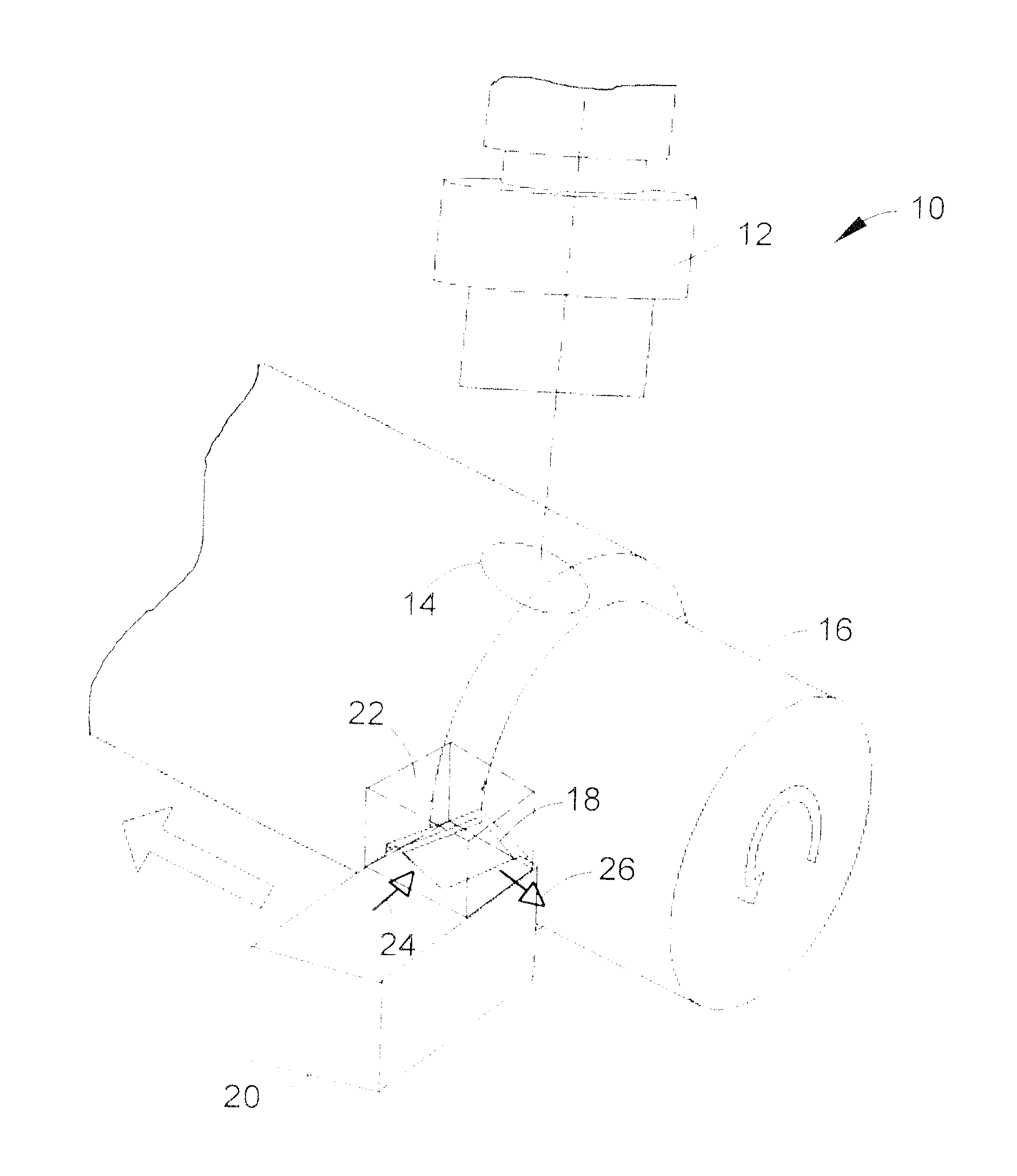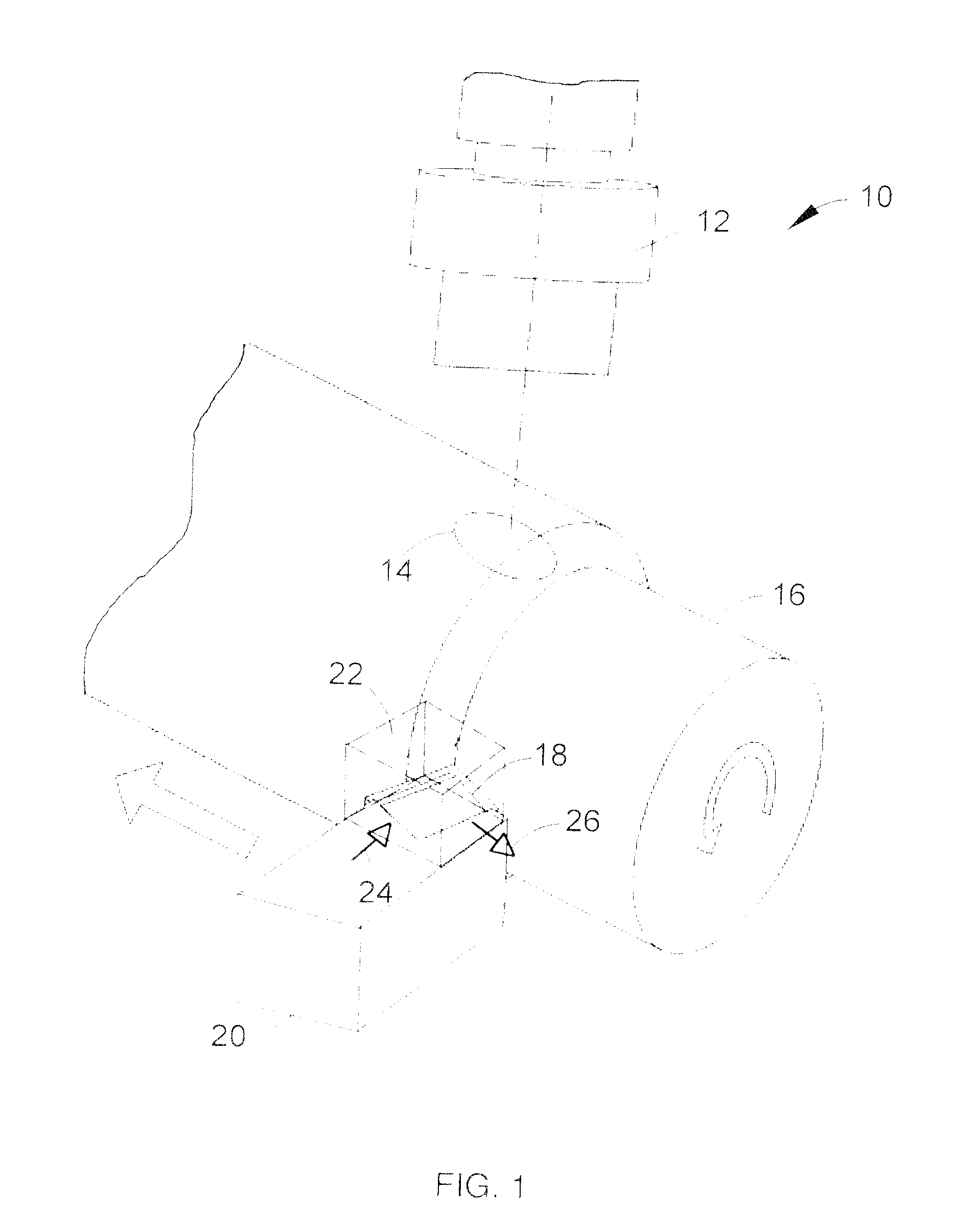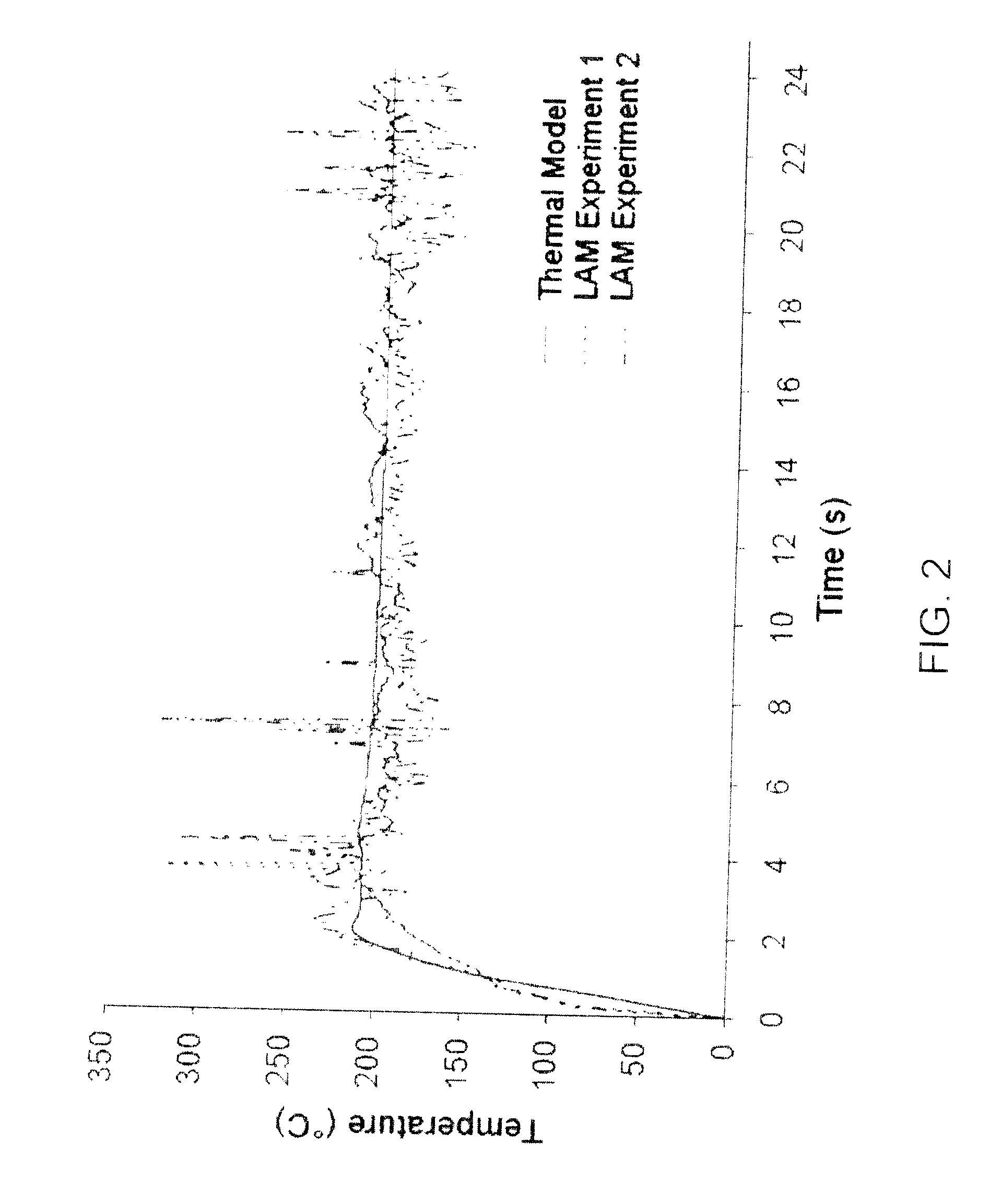Machining apparatus and process
- Summary
- Abstract
- Description
- Claims
- Application Information
AI Technical Summary
Benefits of technology
Problems solved by technology
Method used
Image
Examples
Embodiment Construction
[0023]In investigations leading to the present invention, several potential approaches were contemplated for improving the machinability of titanium, maximizing material removal rates (MRR), and increasing tool life, including the use of standard coolants and lubricants, cryogenic cooling, the use of alternate cutting tool materials such as coated carbide cutting tools, and permanently or temporarily altering the workpiece material properties during machining. As reported below, these approaches were investigated through modeling and experiments, and significant improvements in machinability were achieved with a combination of conditions that included the use of certain cutting tool materials, temporarily altering the workpiece material properties through the use of LAM to produce localized heating of the workpiece, and limited cryogenic cooling of the cutting tool, resulting in a technique referred to herein as hybrid machining.
[0024]The modeling techniques employed included three-...
PUM
| Property | Measurement | Unit |
|---|---|---|
| Temperature | aaaaa | aaaaa |
| Temperature | aaaaa | aaaaa |
| Temperature | aaaaa | aaaaa |
Abstract
Description
Claims
Application Information
 Login to View More
Login to View More - R&D
- Intellectual Property
- Life Sciences
- Materials
- Tech Scout
- Unparalleled Data Quality
- Higher Quality Content
- 60% Fewer Hallucinations
Browse by: Latest US Patents, China's latest patents, Technical Efficacy Thesaurus, Application Domain, Technology Topic, Popular Technical Reports.
© 2025 PatSnap. All rights reserved.Legal|Privacy policy|Modern Slavery Act Transparency Statement|Sitemap|About US| Contact US: help@patsnap.com



